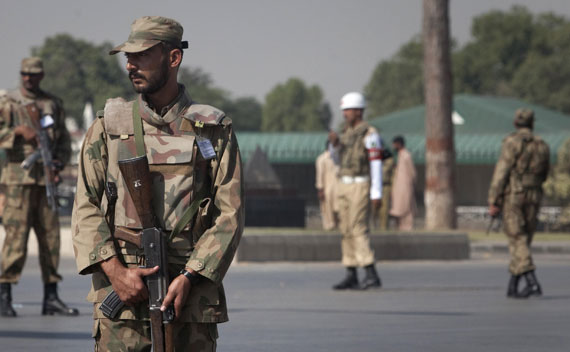Pakistan’s Growing Nuclear Arsenal
More on:

The news coming out of Egypt has overshadowed another important story, the growth of Pakistan’s nuclear arsenal. As first reported in yesterday’s Washington Post and now in today’s New York Times, Pakistan looks like it is about to pass Britain to become the world’s fifth largest nuclear power.
When President Obama took office two years ago, Pakistan had deployed an estimated 70-80 nuclear weapons. Now it has deployed somewhere between 95 and 110, with enough fissile material to make up to 100 more. (Apparently U.S. and Russian efforts to cut their nuclear stockpiles didn’t persuade Islamabad to follow suit.) Britain has 160 deployed nuclear warheads.
The Pakistani nuclear arsenal is not a direct threat to the United States. Islamabad is worried about New Delhi and not Washington, and Pakistan lacks the missiles or aircraft needed to hit the United States in a traditional form of attack.
The security of Pakistani nuclear materials is another matter entirely. Experts inside and outside the government worry that more nuclear material means more opportunities for theft and diversion. Washington has spent more than $100 million to help Pakistan secure its nuclear arsenal. But given Pakistan’s track record with A.Q. Kahn and other matters, it’s hard to be confident that its nuclear complex is secure as it needs to be.
Pakistan’s surging nuclear capacity serves as a powerful reminder that we have left the bipolar world far behind. U.S.-Russian bilateral arms control efforts, however important, form only a portion of today’s nuclear puzzle. With "minor" nuclear weapons powers building major arsenals, and inevitably the ability to deliver them over longer and longer ranges with advanced missiles, hopes of achieving President Obama’s goal of nuclear zero recede further and further. At this point a nuclear freeze would be a major achievement.
Moreover, Pakistan’s nuclear surge comes at a time when it has a democratically elected government, one that Washington helped bring into existence and has subsequently supported. The problem isn’t that Prime Minister Zardari’s government is hostile to the United States. It’s that his government is neither terribly effective nor necessarily in control of all that the military does. So even if Islamabad tells Washington what it wants to hear, there is no guarantee that the pleasant words will be followed by action.
That is a sobering thought to keep in mind as speculation mounts as to what a democratic government in Egypt might look like.
More on:
 Online Store
Online Store